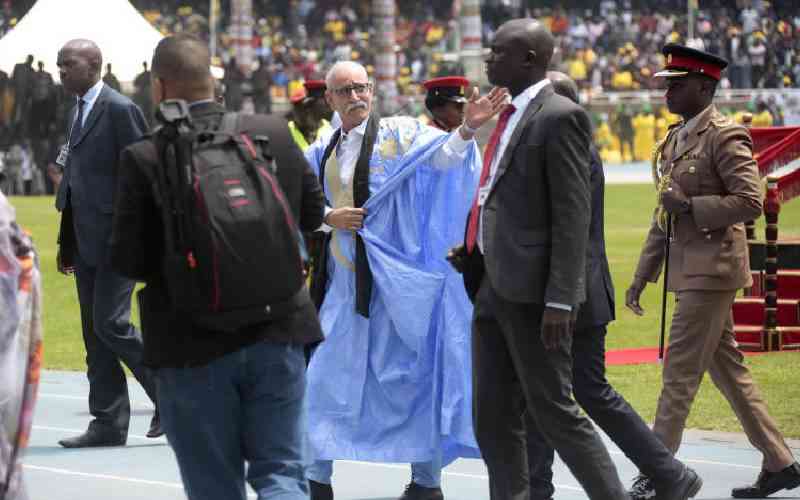×
The Standard e-Paper
Home To Bold Columnists

Sahrawi Arab Democratic Republic President Brahim Ghali during President William Ruto swearing in at Kasarani Stadium on September 13th, 2022. [Boniface Okendo, Standard]
For millions of maize, tea, coffee, sugarcane and potato farmers, the diplomatic tiff between Morocco and Algeria over Sahrawi Arab Democratic Republic (SADR) was a far removed matter. It seemed of little concern.